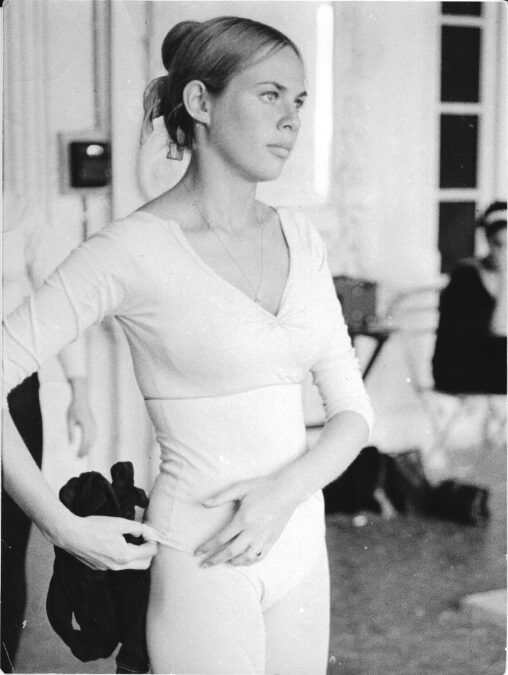Cultivating inner discipline is something that takes patience. Expecting rapid results is simply a sign of impatience.
– – – The Dalai Lama
“How do I get myself to write? I want to, but I keep getting distracted. I’m so resistant, I just can’t seem to get going.”
This issue arises whenever effort is required to accomplish something. We all feel the resistance of doing something difficult to improve our lives. As a writer, I know the drill about watering the plants until they drown, dusting the shelves for the third time or running a vacuum over a perfectly clean carpet instead of sitting at the computer. Unfortunately, I know only one tried and true way to
dig in when you don’t feel like it: Don’t wait until you feel like doing something. Cultivate discipline, do it now and the rest will show up.
As much as we’d like a magic bullet to help us face what we don’t want to do, discipline and consistency are the keys to tackling the thing in front of us. I do an hour long private workout session online with a trainer twice a week. I’m not champing at the bit to get started. A lot of the time, I’m kind of dreading it. I think about the amount of energy I’m about to put out and I drag myself to the living room floor, lay down the exercise mat and get ready. I do it because I made a commitment to do it. I also do it because there is someone meeting me there and I have to show up. But once I begin, it starts to become enjoyable and when it’s over, I feel terrific.
When I was twelve years old, I lived in Worcester, Mass, I did my ballet raining in Boston and it took about an hour and a half to get there. Sometimes my mother drove me, sometimes I took the bus, but however I got there, it was a push. Mentally as well as physically. On the bus, I distracted myself by making up stories about the people around me. That might have been the beginning of my writing career. When I got off the bus and started class, I was always glad I was there.
In the year 2000, I wrote a book called, “Romancing the Bicycle,” for Johnny G., the South African long distance cycling champion who created the training craze called “Spinning.” When he was four and a half, in order to escape a disturbed family, he climbed on his bicycle, pointed it in the direction of the beach, and as he rode, he discovered his spirit and his freedom. It was ironic that the very thing that had set him free required diligence, discipline and consistency to become the expert that he ultimately became.
Johnny told me about mornings when he didn’t want to train and his wife literally shoved him out of bed to go get on his bicycle. I told him about mornings when my mind tried to seduce me into skipping my training – just for one day. I didn’t succumb. I knew that if I skipped one day, I’d keep on doing it. The constant internal debate – should I or shouldn’t I, will I or won’t I – was like a voice yakking in my ear. It was an ongoing battle and I had to use my discipline to point me where I needed to go. And to go there. I keep in mind that trying to
fight my way through something is not the best way to cultivate discipline. Admitting how I really feel about it and finding compassion for myself as I keep my commitments will bring a much greater reward.
Albert
Einstein comes said: “When a man is sufficiently motivated, discipline will take care of itself.”
There is a story about Rohan, a young boy with a playful nature who often skipped his studies and instead, he played with his friends. One day, he encountered an old woman sitting in front of the village pond, observing a lotus flower. She explained that the beauty of the flower that rose up from the mud beneath it, was a result of their consistent and disciplined growth.
Rohan realized that self-discipline was not about restriction. It was about focused effort and perseverance that led to greater achievement and enjoyment. He began to set small goals for himself and he noticed the positive changes in his life. His focus had improved, his grades went up in school, and he began to respect
himself. He ultimately learned that although it was hard to use discipline, it was a powerful tool that allowed people to enjoy the fruits of their labors.
The late Buddhist monk, Thich Nhat Hanh, said that when he was in a car and he came to a red light, instead of complaining about being delayed, he found his discipline and took a moment to just breathe. Buddhist teachings emphasize the importance of mastering one’s mind and behavior that will lead to liberation from suffering. If you don’t act kindly toward yourself, whatever you want to achieve will be much harder. If you shame yourself for skipping a session,
you’ll want to skip the next session. If you shame yourself for not finishing something, you won’t want to go back to it. If you shame yourself for doing a bad job, you won’t want to try to fix it. But if you leave yourself alone and do what’s in front of you, the suffering will ease up.


Recent Comments